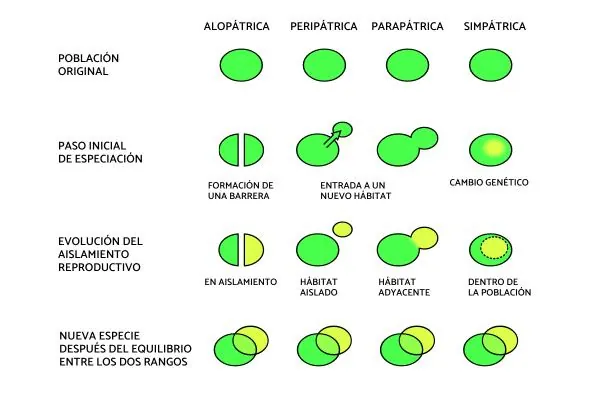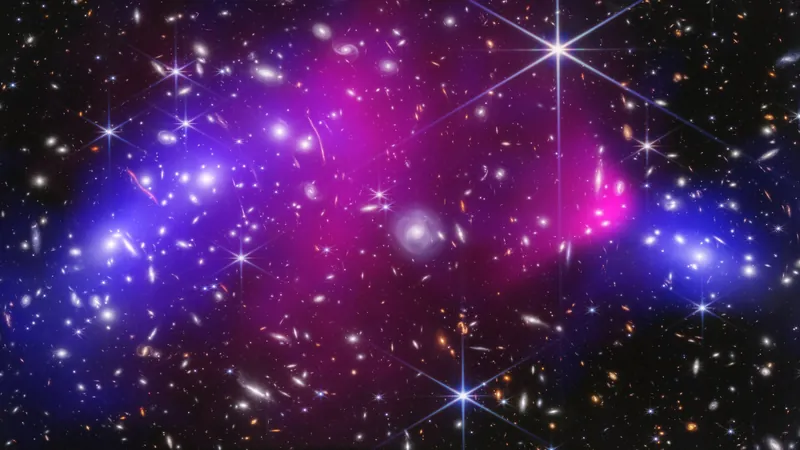
Unlocking Nature's Secrets: The Fascinating World of Speciation
2025-06-14
Author: Michael
Understanding Speciation: What Is It?
Speciation is the evolutionary process through which new biological species arise. This remarkable phenomenon happens when a group of organisms becomes isolated from others, often leading to the development of distinct characteristics and behaviors.
Diving Deeper: Mechanisms of Speciation
Several mechanisms drive speciation. These include allopatric speciation, where a population is separated by geographical barriers, and sympatric speciation, where new species evolve from a single ancestral species while inhabiting the same region. Other mechanisms include parapatric and peripatric speciation, each showcasing unique paths to diversity.
Types of Speciation: A Closer Look
1. **Allopatric Speciation**: This occurs when a population is divided by physical barriers like mountains or rivers, leading to genetic divergences over time. 2. **Sympatric Speciation**: Here, new species emerge without physical barriers, often due to behavioral changes or ecological preferences. 3. **Peripatric Speciation**: A form of allopatric speciation, it happens when a small population becomes isolated at the edge of a larger population, leading to rapid changes. 4. **Parapatric Speciation**: Occurs when populations are geographically adjacent but still experience distinct selective pressures, leading to the emergence of new species.
Incredible Examples of Speciation in Nature
Nature is brimming with awe-inspiring examples of speciation. The famous Darwin’s finches of the Galápagos Islands vividly illustrate adaptive radiation, a process where a single ancestral species diversifies into multiple forms, each adapted to different niches. Similarly, the cichlid fish of African lakes showcase stunning diversity after thousands of years of evolution in isolated environments.
Why Speciation Matters: The Key to Biodiversity
Speciation is critical for maintaining biodiversity, which is fundamental for ecosystem resilience. Each new species contributes to the complexity of ecosystems, providing unique roles and interactions that enhance the stability and functionality of our planet. Understanding speciation helps us appreciate the intricate web of life and the evolutionary processes that drive it.
The Bigger Picture: The Importance of Literature in Speciation Research
Research and literature on speciation provide invaluable insights into evolutionary biology. By studying the mechanisms and examples of speciation, scientists continue to unravel the mysteries of life’s origins and the ongoing evolutionary changes shaping our world.









 Brasil (PT)
Brasil (PT)
 Canada (EN)
Canada (EN)
 Chile (ES)
Chile (ES)
 Česko (CS)
Česko (CS)
 대한민국 (KO)
대한민국 (KO)
 España (ES)
España (ES)
 France (FR)
France (FR)
 Hong Kong (EN)
Hong Kong (EN)
 Italia (IT)
Italia (IT)
 日本 (JA)
日本 (JA)
 Magyarország (HU)
Magyarország (HU)
 Norge (NO)
Norge (NO)
 Polska (PL)
Polska (PL)
 Schweiz (DE)
Schweiz (DE)
 Singapore (EN)
Singapore (EN)
 Sverige (SV)
Sverige (SV)
 Suomi (FI)
Suomi (FI)
 Türkiye (TR)
Türkiye (TR)
 الإمارات العربية المتحدة (AR)
الإمارات العربية المتحدة (AR)